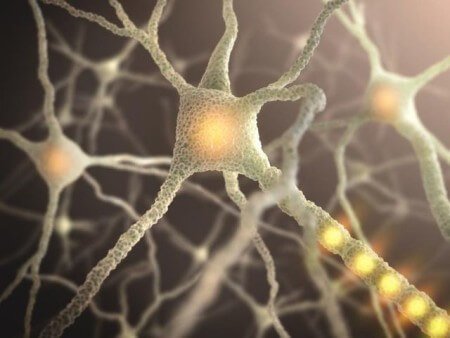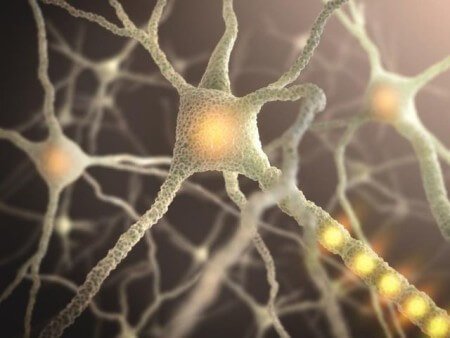Learn about brain health and nootropics to boost brain function
10 Acetylcholine Benefits, Function & Supplements


Acetylcholine is a hot topic within the realm of memory enhancement. It is a neurotransmitter that is critical for the everyday functioning of the brain, particularly in the areas of movement, learning & memory, and sleep quality. Check out this post to learn how to promote balanced acetylcholine in your body and function at your very best.
What Is Acetylcholine?
Acetylcholine is used by organisms in all domains of life for a variety of purposes. It is believed that choline, a precursor to acetylcholine, was used by single-celled organisms billions of years ago, for creating the cell layers [1].
Acetylcholine is a neurotransmitter that is used for many things: from stimulating muscles to memory and sleep.
Acetylcholine is synthesized from acetyl-CoA (which comes from glucose) and choline, with the help of the enzyme choline acetyltransferase [2].
Acetylcholine controls movements by causing muscle contractions. Acetylcholine and histamine interact together to contract muscles in the lungs [3, 4].
In the brain, it is involved in memory and attention, and promotes the phase of sleep associated with dreaming (REM sleep) [5, 6, 7].
Too little acetylcholine in the memory center of the brain (hippocampus) has been associated with dementia and Alzheimer’s [5].
Scopolamine, a drug that blocks acetylcholine, impaired acquisition of new information in humans and animals [8, 9].
In monkeys, disruption of the supply of acetylcholine to the brain (neocortex, hippocampus) impaired the acquisition of factual information (discrimination learning) and also produced forgetting comparable to human amnesia [10, 11].
In an observational study on almost 1400 people, higher choline intake was related to better cognitive performance (verbal and visual memory) [12].
There is a link between acetylcholine and Alzheimer’s disease. It is estimated that there is a 90% loss of acetylcholine in the brains of people who suffer from Alzheimer’s. For this reason, drugs that increase acetylcholine are commonly used in patients with Alzheimer’s [13, 14].
Acetylcholine may enhance memory by helping encoding new memories and increasing the modification of synapses [15].
In a small trial on 24 male volunteers, choline supplementation (500 – 1,000mg, CDP choline) improved a variety of cognitive processes (including working memory and verbal memory), but only in low cognitive baseline performers (i.e. less intelligent people). CDP choline works in part by increasing acetylcholine [16].
Historically, acetylcholine has been thought to be mainly important in learning and short-term memory functions. However, more recent studies have provided support for acetylcholine’s role in attention [17].
For instance, 60 healthy adult women aged 40 – 60 who took choline supplements (CDP-choline) for 28 days had improved attention [18].
In rats, acetylcholine helped improve attention and task performance [6].
Acetylcholine is also important for the enhancement of alertness when we wake up [7].
Acetylcholine has such a significant influence on decreasing inflammation that it has a pathway named after it: “The cholinergic anti-inflammatory pathway” [19].
Inflammatory cytokines are produced by cells of the immune system during injury and infection. These contribute to initiating a cascade of effects which recruit inflammatory cells to the site of infection in order to contain it.
The cholinergic anti-inflammatory pathway provides a braking effect on the immune response., This protects the body against the damage that can occur if a localized inflammatory response spreads beyond the local tissues to the kidney, liver, lungs, and other organs [20].
Activation of the vagus nerve exerts its anti-inflammatory action via acetylcholine [19].
Decreased vagus nerve activity occurs in inflammatory bowel disease (IBD) as a result of less anti-inflammatory activity by acetylcholine activation [19].
In animals, increased acetylcholine reduced gut mucosal inflammation (MHC II level and pro-inflammatory cytokines via α7nAChR) [19].
Acetylcholine has been shown to reduce IL-6, IL1B, TNF-a and other pro-inflammatory cytokines in different inflammatory conditions, including IBD [19].
Acetylcholine receptors (α7nAChR) are found on various immune cells (macrophages, monocytes and mast cells), and reduce inflammation by inhibiting their activation [19].
However, acetylcholine (via nAChR) also suppresses the production of anti-inflammatory cytokine (IL-10).
Acetylcholine release is increased during wakefulness and it is one of the main neurotransmitters responsible for wakefulness, in addition to orexin, histamine, norepinephrine, and dopamine [21, 7].
In rats, sedative and hypnotics (zolpidem, diazepam, and eszopiclone) alter acetylcholine release [21].
Acetylcholine promotes REM sleep, which helps the brain rest and improves memory storage [22].
Nicotine (via nicotinic acetylcholine receptors) helps gut flow. This is why 1 in 6 people stopping smoking get constipation [23].
Also, antidepressant drugs able to inhibit this acetylcholine receptor commonly cause constipation as a side effect [24].
The part of the nervous system responsible for ‘rest and digest’ response (parasympathetic) uses acetylcholine to cause these effects [25].
Directly activating choline receptors or increasing acetylcholine reduces pain in rodents and humans, while blocking choline (muscarinic) receptors increases pain sensitivity [26].
Higher levels of acetylcholine in the spinal cord cause pain relief, whereas reducing acetylcholine levels or activity (via receptor blockade) increases pain sensitivity [26].
Donepezil, a drug that increases acetylcholine, produces a dose-dependent pain relieving effect in humans and is also effective as a preventative treatment for migraines [27].
Activating the nicotinic receptors also exerts anti-pain effects in animal models of acute as well as chronic pain states [28].
Acetylcholine in the blood increases the production of nitric oxide in the blood vessels (via muscarinic receptors), leading to improved blood circulation (vasodilation) [29].
Acetylcholine can modulate inflammatory responses. Acetylcholine was shown to have the ability to inhibit biofilm formation during fungal infections (Candida albicans) in an animal model of infection [30].
Acetylcholine affects pituitary hormone secretion by acting on the hypothalamus. It causes prolactin and growth hormone to secrete from pituitary glands [31, 32].
Negative Effects of Acetylcholine
The association between smoking and depression has been reported in many studies [33].
In chronic smokers, acetylcholine (nicotinic) receptors are increased, rather than decreased, as is often the case with chronic substance use. The increase in these receptors could contribute to the association of depression and smoking [33].
Based on animal models, too much activation of certain acetylcholine receptors (nicotinic receptors -alpha4beta2 or alpha7) may contribute to depression [34, 35].
How to Increase Acetylcholine
Most importantly, work with your doctor to diagnose acetylcholine deficiency and treat any underlying conditions causing your low acetylcholine levels. You may try the additional strategies listed below if you and your doctor determine that they could be appropriate. None of these strategies should ever be done in place of what your doctor recommends or prescribes.
In order to increase your body’s levels of acetylcholine, you should increase choline levels. Choline can be found in a variety of sources [37].
When it comes to the herbs listed, they increase acetylcholine by inhibiting the enzyme that breaks them down – acetylcholinesterase. Most common herbs have some inhibitory activity against the enzyme.
Stronger Supplements:
Weaker Supplements:
A lot of drugs can inhibit acetylcholine, either by imitating it or inhibiting choline. Never start taking a drug or increase its dose without consulting your doctor. Follow your treatment plan as prescribed [72].
Additionally, some supplements may help you lower your acetylcholine levels. As was the case for those that raise them, work with your doctor to diagnose and treat the causes of your high acetylcholine levels. You may take these supplements as a complementary strategy if your doctor determines that they may help in your case.
Stronger:
Weaker:
Click here to view full article